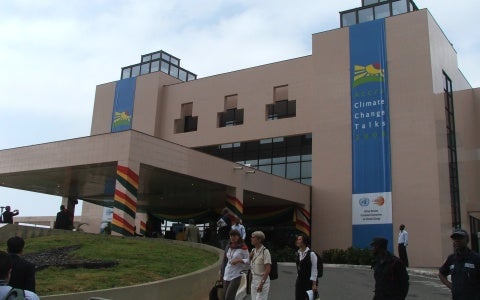 This post is by Lisa Moore, Ph.D., a scientist in the Climate and Air program at Environmental Defense Fund.
This post is by Lisa Moore, Ph.D., a scientist in the Climate and Air program at Environmental Defense Fund.
What does wildlife conservation mean to you? Setting aside land? Restoring habitat? Reducing local stresses to species or ecosystems? These are the conventional methods. But because of rapid climate change, scientists in a recent paper say this may not be enough:
[T]he future for many species and ecosystems is so bleak that assisted colonization might be their best chance.
Assisted colonization – moving species to sites where they aren’t native – is a high-risk suggestion. There are many cases, for example, where introduced species have become invasive and wreaked havoc on native ecosystems. So why would some of the world’s leading biologists make such a suggestion?
Read More »











 This post is by
This post is by 
 This post is by
This post is by  Have you ever spent time scrolling through
Have you ever spent time scrolling through  This post is by Sheryl Canter, an online writer and editorial manager at Environmental Defense Fund.
This post is by Sheryl Canter, an online writer and editorial manager at Environmental Defense Fund.